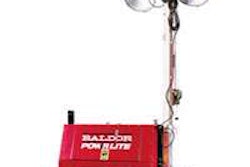Vulcan Materials Company announced results on Feb. 8 for the fourth quarter and full year ended Dec. 31, 2009.
For the full press release, including tables and a breakdown of earnings, click here: Vulcan_4Q2009PressRelease.
The following are the fourth quarter summary and comparisons with the prior year:
· Net earnings from continuing operations were a loss of $13 million, or $0.10 per diluted share.
· Cash earnings from continuing operations were $67 million.
· Aggregates shipments declined 23 percent, reducing earnings $0.57 per diluted share.
· Aggregates pricing increased 5 percent.
· Aggregates cash fixed costs decreased 8 percent.
· Selling, administrative and general expenses decreased 7 percent.
· Total contract awards for highways increased 13 percent in Vulcan-served states
Don James, Vulcan’s chairman and CEO, said in a written statement, “Our employees continue to run the business in a cost-efficient manner, maximizing our cash generation during the economic downturn. Their efforts in the fourth quarter contributed to further reductions in cash fixed costs in our operations as well as reductions in overhead expenses.”
James noted that continued weakness in private construction activity, uncertainty surrounding the timing and amount of either a formal extension or reauthorization of the multi-year federal highway program, and extremely wet weather suppressed momentum gained from stimulus-related construction.
However, he said that Vulcan finished the year with strong cash generation.
For the full year 2009, free cash flow was $343 million, an increase of $261 million from the prior year, and cash earnings per ton of aggregates remained in-line with the prior year.
“We continue to believe that 2010 will be the biggest year for stimulus-related highway construction,” James said in a written statement. “Economic stimulus funds of $27.5 billion designated for highway projects under the American Recovery and Reinvestment Act of 2009 buoyed contract awards for highways in the second half of 2009.
“Despite the failure of Congress to pass a fully-funded extension of SAFETEA-LU, the previous highway authorization that expired on September 30, 2009, contract awards for highways in the fourth quarter increased 9 percent from the prior year,” James continued. “Vulcan-served states, which were apportioned 55 percent more funds than other states, generally have lagged the rest of the country in awarding contracts and starting stimulus-related construction. In the fourth quarter, however, contract awards for highway projects in our states increased 13 percent from the prior year versus a 2 percent increase in other states. We are encouraged by the increased award activity and are optimistic that stimulus-related highway projects in Vulcan-served states, after a slow start, are now moving forward and will benefit demand for our products in 2010.”









